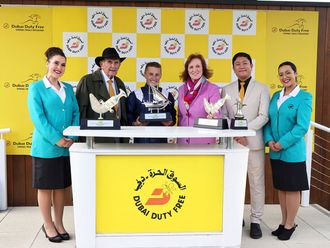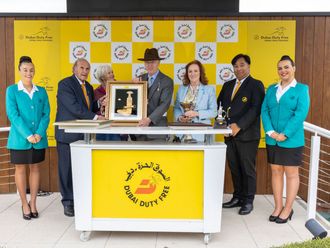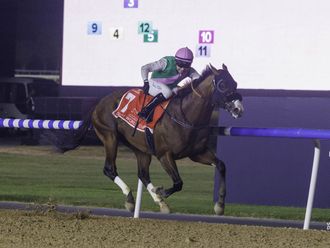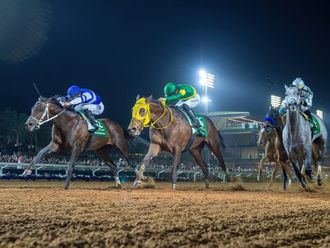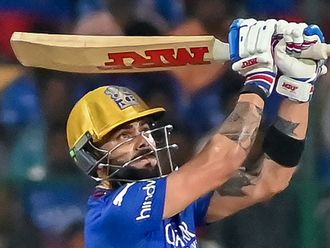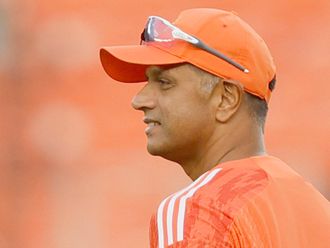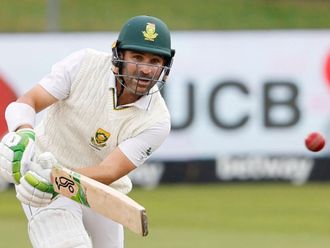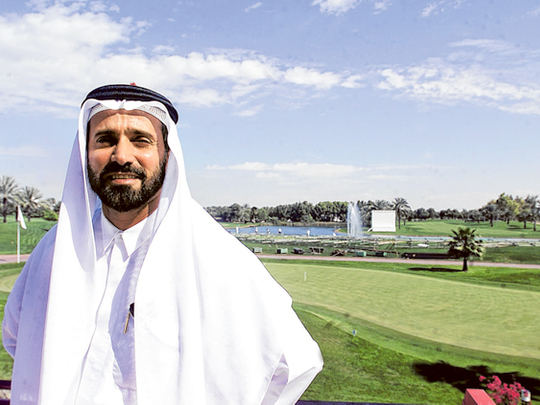
Dubai: Mohammad Juma Bu Amim, Vice Chairman and CEO of Golf in Dubai, has criticised the use of the expression ‘Desert Swing’ to describe the three most popular golf tournaments in the region, saying he is both “surprised and disappointed” at the trend.
The catchphrase has been frequently used to brand the Abu Dhabi HSBC Golf Championship, the Commercial Bank Qatar Masters and the Omega Dubai Desert Classic — the European Tour events that take place in January-February every year — but Bu Amim says he does not see the connection.
“I’m sure all of us here in the region will prefer to call it the ‘Gulf Swing’, rather than the ‘Desert Swing’,” he said. “That’s a very wrong expression because it is not the desert swing, it is the ‘Gulf Swing’ because it is in the Gulf countries.
“If you also include Egypt or Sudan, you can call it the ‘Middle East Swing’, or Morocco and elsewhere, then it can be called the ‘African Swing’. But I oppose ‘Desert Swing’, I don’t know where and why this expression came from, it’s totally wrong.”
Bu Amim was speaking to Gulf News on the eve of the 25th Anniversary of the Dubai Desert Classic this week and he readily took a trip down memory lane to reflect on some of the most memorable moments and the impact the tournament has made on the UAE sporting scene.
Gulf News: Congratulations on 25 glorious years Mohammad, many of which you have been actively involved in the tournament. Would you care to share your thoughts with us on this special occasion?
Bu Amim: I must be the happiest man on earth simply because I am very lucky to be involved in the golf scene, as a member of Golf in Dubai. I’m also very happy that all our past champions, with the exception of Seve Ballesteros, who unfortunately left us, are here this week. I’m glad that the great Seve is represented by his son Javier. It just makes it so very special to actually have all these guys coming back.
What makes the tournament unique?
Bu Amim: The Omega Dubai Desert Classic is the reason why there is so much golf in this part of the world. It has promoted the city of Dubai to the world for a long time — at one time, it was the only major sports event in this part of the world. However, since then many things have happened, but nothing has changed. The Classic helps promote golf in Dubai and, at the same time, promotes Dubai as a destination for golf. It has been a trend-setter in the region as many others have realised the strength of golf to promote a country. I would say without the Desert Classic, we wouldn’t be where we are at the moment as we now have a very, very strong industry, which is one of the pillars of our tourism drive. Golf is probably the only sport where people travel and are willing to pay money to play the game. The beach is a beach, nothing changes much. But golf courses are special and I think our course is only one of its kind.
It must have come as a surprise to many that such a high-quality course could be built in the desert.
Bu Amim: Well, for a start, the course was the vision of a passionate man. When His Highness Shaikh Mohammad Bin Rashid Al Maktoum, Vice President and Prime Minister of the UAE and Ruler of Dubai, decided to build a course, he instructed that it must be done to the best possible standards in the world. And that’s exactly what happened. It wasn’t just done to be a championship course, it was done to benefit all kinds of golfers — professionals and amateurs can play on it and both can enjoy the game equally.
How difficult is it to maintain, given the fact that the temperature really rises during summer?
Bu Amim: All golf courses in the world have to be maintained. Perhaps golf courses in this part of the world need more maintenance than others. In the early days, we used to put 1.5 million gallons of fresh water on it daily, but we don’t do that anymore — we use treated sewerage water, which is cheaper and available in abundance. So, we are environmentally friendly as well. Where there is a will, there is a way. We are constantly looking at ways that are more feasible and how to keep the course busy, all year round. Golf courses need to bring in the money to keep their operational costs covered, that’s what we aim for.
What kind of an impact has the Classic made on Emirati youth? Coming from your background as a youth development manager, what is your assessment?
Bu Amim: Golf tournaments do two things. One, they introduce the host city to the world, and the other is they introduce golf to the host city. It can impact on individuals by attracting them, but it does not actually develop them. The development comes from the people who realise that golf is a good thing. That is where the Emirates Golf Federation came into effect, when we started programmes to bring in more and more people and we are still trying to bring in more and more golfers. We do not stop. We have gone into the curriculum of some schools — for example, we are experimenting with Rashid School for boys, where golf is a part of the curriculum and they think it is one of the most successful programmes because they find that the kids actually like it. That’s what we want, we want youngsters to like the game and then we can help them to progress further. We are not just interested in the Emirati kids, also expatriates who like to play golf. We need to get more numbers in the game regardless of nationality. That’s very important to us.
What sort of support have you received from the Dubai government?
Bu Amim: What we need from the ruling family is their moral support and that’s what they have given us right from the start. Every time we have a tournament, a representative turns up and that’s what gives everybody a push to do better. That’s enough support for us, because we know that they are always there to support us. If we need anything, we only have to request it. But the most important thing is the moral support we get from the government.
What is your favourite moment in the last 25 years?
Bu Amim: All of them [laughs]. I don’t like to say such and such tournament was special because they were all special. I’m happy if everybody is happy. When a player comes up to me to just say ‘thank you’ before he leaves, you feel something, because that’s what we aim for, that’s what we want. When people who have been to the Classic for the first time write to you to say that they want to come back, that feels great, that’s what we want to hear.
Do you remember your first Dubai Desert Classic?
Bu Amim: Of course. However, I only got involved when we launched the UAE Golf Federation in 1997 and, because I was with the junior programme, I was responsible for bringing the youngsters to watch the Classic. And I tell you, just seeing the passion those kids showed was something so special. Those are the memories I like, because it is important for me to see youngsters fall in love with the game, Arabs are like any other nationality. We don’t have any nationality barrier in Dubai, everybody is treated the same and that’s probably why we won the Expo 2020, because everybody who lives here was behind it.
Has the Championship course undergone any changes recently?
Bu Amim: This course should not be touched. It’s perfect the way it is. Golf is not about making a course difficult or to make the players’ lives miserable. Even spectators want to be happy, to have a laugh, enjoy the day and they’re only doing that when somebody’s making a birdie or an eagle. When you see a player suffering, you see the crowd concerned as well. Golf is a celebration both for the player and the crowd. Golf courses should not penalise players, they should reward them. This course is like that — if you’re a good player, it will reward you, if you hit the wrong shot, you pay the price, but you don’t end up crying.
What does the future hold for the Dubai Desert Classic? Perhaps we may see an increase in prize money?
Bu Amim: It’s going to be here longer than I’m going to be here for sure [laughs]. But, look, it’s ours and it’s here to stay. It will not die unless the government says they don’t want to support golf anymore and that’s not going to happen. We also don’t believe in increasing the prize money. Players like coming here anyway. We’re staying as we are as we don’t think that an increase in prize money will add any more value to the tournament.


